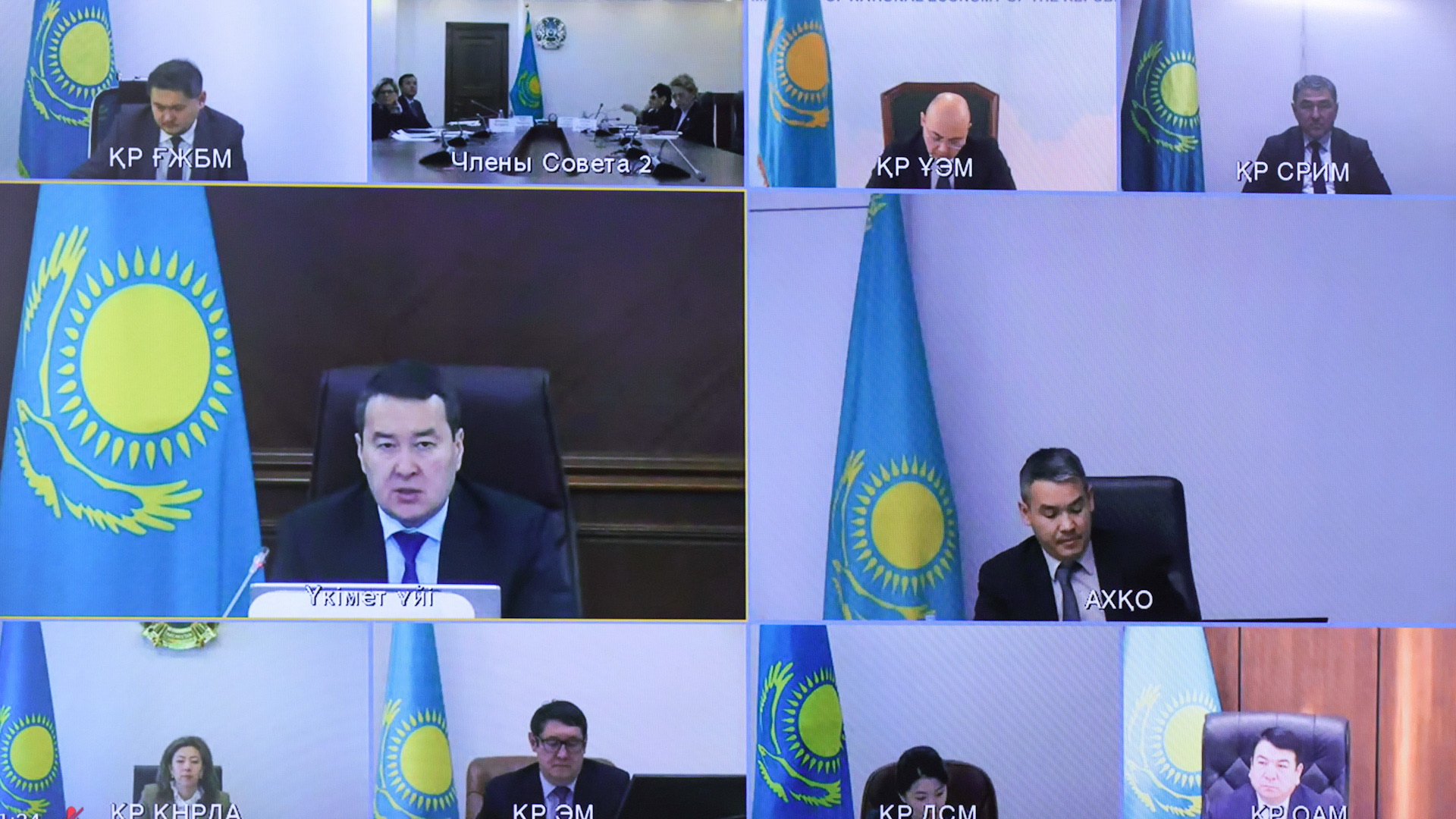ASTANA – Kazakhstan needs more than $600 billion to achieve carbon neutrality by 2060, said Kazakh Prime Minister Alikhan Smailov, urging relevant ministries to intensify efforts to attract investments in green technologies during a Dec. 14 meeting of the council on the transition to a green economy, reported the Prime Minister’s press service.

Photo credit: Prime Minister’s press service
According to Chair of the Agency for Regulation and Development of the Financial Market Madina Abylkassymova, to date, the country has created the necessary legislative and regulatory framework for the development of green financing, adopting a new Environmental Code and making amendments for the issue and circulation of green bonds and environmental, social and governance (ESG) bonds. Kazakhstan Stock Exchange (KASE) and Astana International Financial Centre (AIFC) adopted rules of ESG-information disclosure.
As of Nov. 1, the volume of corporate borrowing on KASE reached 208 billion tenge ($457.7 million), having increased more than four times compared to 2021. The volumes of green lending in the banking sector totaled 220 billion tenge ($484.1 million), having risen more than 3.5 times.
As of Dec. 1, Baiterek National Managing Holding supported green projects for 177.5 billion tenge (US$390.6 million). In particular, the Development Bank of Kazakhstan supported seven major investment projects in renewable energy for 118 billion tenge ($259.6 million). Qazaqstan Investment Corporation financed several projects, including constructing solar and hydroelectric power plants for 11.1 billion tenge (US$24.4 million). Another subsidiary organization – Damu Entrepreneurship Development Fund – supported 91 green projects for 7.4 billion tenge (US$16.3 million).
Since 2018, the Industry Development Fund has provided lease financing for the bus fleet renewal as part of support for domestic automakers. The fund financed the purchase of 120 electric city buses in Astana and ten buses in Pavlodar.
From January to June, the Agrarian Credit Corporation supported 15 green projects, including creating irrigation systems and intensive orchards, for 2 billion tenge (US$4.4 million).
Following the meeting, Smailov emphasized that the large-scale economic transformation requires, among other things, an increase in the volume of green investments. He instructed analyzing the barriers in the implementation of green projects to accelerate the introduction of requirements for mandatory disclosure of information on green finance, as well as to provide relevant indicators and measures in the action plan of the concept for the transition to a green economy.

